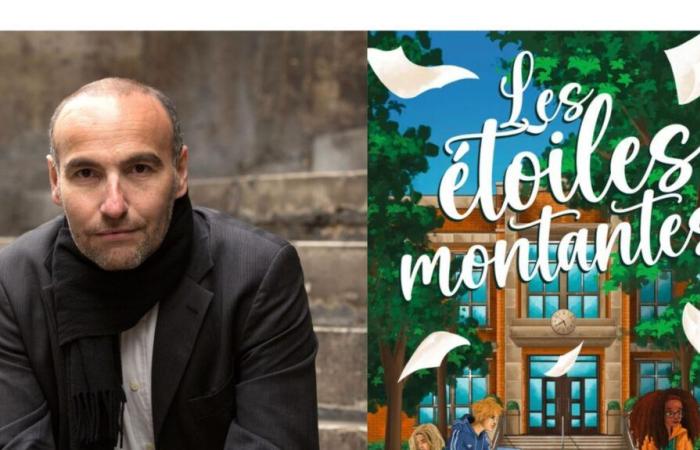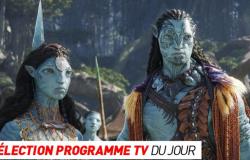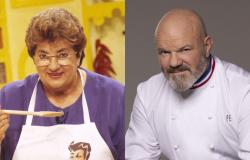For his fourth children's book, Rising Stars published by Milan, Mabrouck Rachedi features a quartet of college students who plan to become screenwriters. The writer explores a theme that he knows well: the mobilizing capacity of writing for young people. By intervening in schools and supporting them in the production of a text in workshops for years, the writer has decoded some of the mechanisms that set young authors in motion. Rachedi thus constructs, with Rising Starsa “feel good story” rich in twists and turns in which teenagers, with sometimes iconoclastic profiles, are the touching heroes.
Khadijatou strives to find the winning lottery combination. Aline is just as determined to challenge everything she can on the administrative level. Kevin instead attacks his classmates by attacking them. Finally, Yanis persists in hiding the fact that he is an amateur photographer. It is also his interest in images that brings him closer to his teacher, Ms. Tayeb. The teacher wants to do “discover the history of cinema” to his students. But the business seems difficult this year in its Aubervilliers establishment. To relaunch her film club, she tries to lure them with a French classic which talks about young people from the suburbs like them, Hate by Mathieu Kassovitz. It is only Yanis who falls into the trap attracted by the black and white photography of the film. He will be the first recruit to a film club which will also change the lives of his fellow adventurers and future friends, as if to make up for having lured them into enlisting them.
The little gang would not only watch the films, they would soon write about them. At least a short film. When Ms. Tayeb suggests that her students register for a screenwriting competition, unpleasant memories come to the surface. When she was younger, the professor took part in a similar competition, but her group did not win because the jury considered that “students from our high school could not have written such an elaborate text.” Her story moves today's students, but she warns them: we must not take up this challenge to “bad reasons”. Registering for this competition will do it well for them, even if they don't realize it yet.
Rising Stars is at the crossroads of the turpitudes of cinema, of adolescence, of distant wounds which have difficulty healing, of the unpleasant feeling of downgrading felt by those who live in the peripheries. Here, the suburbs. Khadijatou suffers from an absent father, Yanis worries about his beloved maternal aunt, Djamila, who is ill: she has become the mother he no longer has. Kevin bears the after-effects of a dysfunctional family life and Aline remains searching for everything that is going wrong and that upsets her.
The novel is the story of a creative rise which is nourished by the wanderings of its young heroes. After revealing them, Mabrouck Rachedi relates how their new objective will gradually crush their neuroses, including the one they ignored. The exercise of writing is beneficial despite the obstacles to overcome: you must not only use your imagination, but also put yourself at the service of a collective.
Having been around adolescents so often helps Mabrouck Rachedi to construct life paths that reflect the gaps that one can feel during this delicate period of life, especially when parents are absent figuratively as well as literally. Ms. Tayeb is here a John Keating, the inspiring English literature professor in Todd Anderson's film – The Circle of Dead Poets – parachuted into Aubervilliers. Through his story, the writer reconstructs a film library where we can find pell-mell Blow Up (1966), A Star Is Born (2018), Black Panther (the 2 opuses) or the documentary Hell by Henri-Georges Clouzot (2009). Aline, Khadijatou, Kevin and Yanis are the faithful fictional avatars of a youth eager for projects and challenges to take on.


“Rising Stars” (Milan), 200 pages, 14,90 euros
Extract :
“Can I say something? He asks shyly.
– Of course, that’s what you’re here for, Khadijatou encourages him
– I don't want to offend anyone, you see, but don't you think it's a bit cliché, this story of police checks? continues Kevin
-Is this a question or a statement? replies Khadijatou, a little offended
-We are the only suburban establishment to participate in this competition and we will represent our neighborhoods as we already show them on TV. Couldn't we be where we're not expected? Maybe I'm saying something stupid, it's just my opinion.” (Rising Starspage 112)






